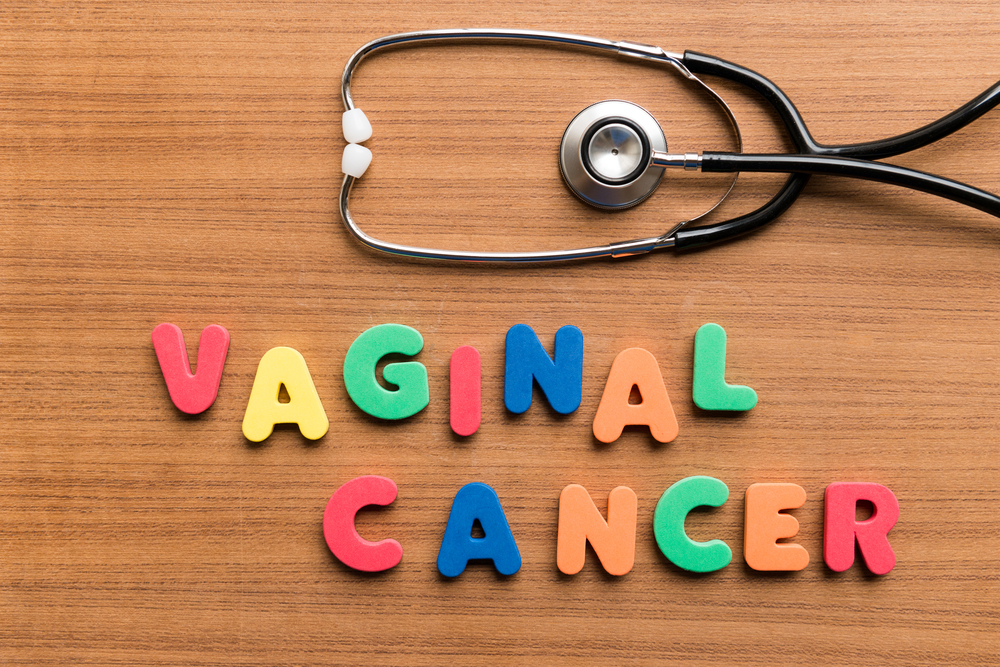Overview
Vaginal cancer is rare cancer that occurs in the vagina. It most commonly occurs in the cells that line the surface of the vagina, which is sometimes called the birth canal.
A diagnosis of early-stage vaginal cancer has the best chance of a cure. Vaginal cancer that spreads beyond the vagina is much more difficult to treat.
Key Facts
- Vaginal cancer is a rare type of cancer that starts in the vagina
- The risk of vaginal cancer increases as a woman ages. Most people who are diagnosed are older than 60.
Symptoms & Diagnosis
Symptoms
Unfortunately, early-stage vaginal cancer may not have any signs and symptoms. As it progresses, vaginal cancer can cause symptoms such as:
- Unusual vaginal bleeding, for example, after intercourse or after menopause
- Watery vaginal discharge
- A lump or mass in your vagina
- Painful urination
- Frequent urination
- Constipation
- Pelvic pain
Diagnosis
Vaginal cancer can be found during a cervical screening, aiming to find and treat abnormalities before they become cancer. So it is essential to attend your regular cervical screening.
You will also have a pelvic exam occur. The doctor will carefully inspect the outer genitals, insert two fingers of one hand into your vagina and simultaneously press the other hand on your abdomen to feel your uterus and ovaries. They will also insert a device called a speculum into your vagina. The speculum opens your vaginal canal so that they can check your vagina and cervix for abnormalities.
How often you undergo these screenings depends on your risk factors for cancer and whether you’ve had abnormal cervical screenings. Ensure you chat with your doctor about how often you should have these health screenings.
Causes & Prevention
Causes
An infection nearly always causes vaginal cancer from certain types of human papillomavirus (HPV).
HPV can be transmitted by:
- Any skin-to-skin contact in the genital area
- Vaginal, anal or oral sex
- Sharing sex toys
You are also more likely to get vaginal cancer if:
- Precancerous cells have been found in your cervix or vagina
- You have had cervical or womb cancer, especially if you were given radiotherapy
- You are 75 and over – vaginal cancer is most common in older women
- You have a condition that affects your immune system, for example, lupus or HIV
- Your mother took the hormonal drug diethylstilbestrol (DES) while pregnant with you.
Prevention
There is no sure way to prevent vaginal cancer. However, as there’s a link between vaginal cancer and HPV, you can reduce your risk by:
- Undergo regular pelvic exams and cervical screenings. When discovered in its earliest stages, vaginal cancer is more likely to be cured. Discuss with your doctor when to begin these tests and how often to repeat them.
- Ask your doctor about the HPV vaccine. A vaccination to prevent HPV infection may reduce your risk of vaginal cancer and other HPV-related cancers. Ask your doctor whether an HPV vaccine is appropriate for you.
There are also some other things you can do to lower your chance of getting vaginal cancer:
- Use condoms, as these lower the chance of getting HPV
- Quit smoking, as smoking weakens the immune system and the chemicals in cigarettes can also cause cervical cancer
- Eat a balanced diet to help support your immune system
Treatments
Vaginal cancer is often treatable, especially when caught in the early stages. Your specific treatment will depend on the following:
- The size and type of vaginal cancer you have
- Where it is in the vagina
- If it has spread
- Your overall health
The primary treatment for vaginal cancer is radiotherapy. Depending on the factors above, you may also have surgery or chemotherapy. All these will be discussed with you in detail by your medical team.
Conclusion
Vaginal cancer is a rare form of cancer and can be treated successfully if caught at an early stage. The best way to prevent it is to ensure that you have the HPV vaccine and have regular cervical and pelvic examinations.
MOST COMMON







